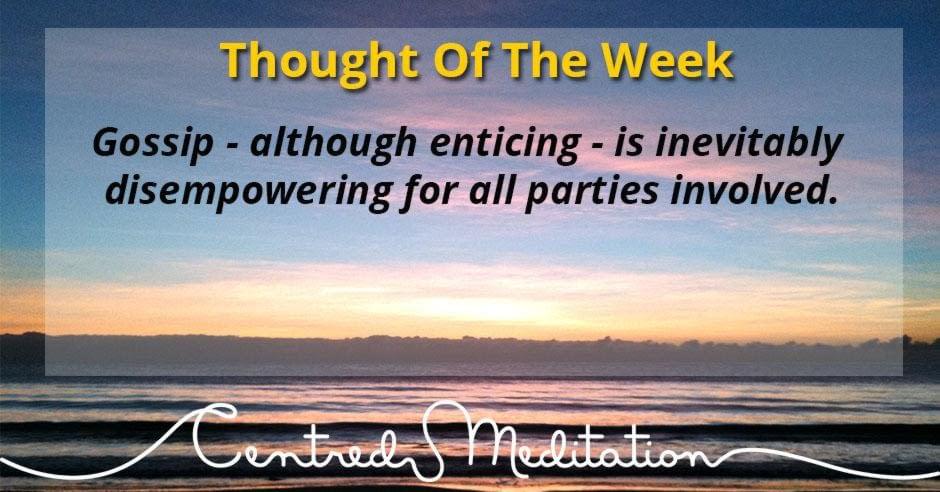A friend starts a sentence with: “Did you hear what happened to…”? We can’t help but lean in a little closer to find out the rest of the sentence. The lure of being in the loop is just too enticing! It’s as if human beings have this innate drive to know about other people’s lives. You only have to look at the celebrity gossip industry worth more than $3 billion as proof.
Why is gossip so engrained in our behaviour? Psychologists, evolutionary scientists, and anthropologists all claim that gossip has long been a way for group members to bond with one another and a tool to protect themselves from those who are acting selfishly. Sounds harmless, right? It’s not. Research suggests that gossip can hurt relationships, create a climate of fear and resentment, and increase stress. It has been shown to affect morale, productivity, and even health. And it’s rife – especially in the office. Studies from the University of Amsterdam found that 90 percent of total office conversation qualifies as gossip. Research at the Georgia Institute of Technology concluded that gossip makes up 15 percent of office e-mail. What’s worse, most of the time we don’t even realise we are doing it.
This begs the question, what constitutes gossip? Cambridge Dictionary defines gossip as “conversation or reports about other people’s private lives that might be unkind, disapproving, or not true”. Essentially, it’s when we share our assessment of another person in their absence. You see, it doesn’t necessarily have to be negative for it to be harmful. Consider when a friend gave you their opinion about someone you were yet to meet. Do you recall that you couldn’t help but be shrouded by that judgement when you were finally in their presence? Gossip literally robs us of the ability to make our own unbiased, uninhibited assessment of another person (or we would argue situation too). Quite frankly, it’s unfair and disempowering for everyone involved. Yet since it is so habitual and widespread, it can be difficult to stop.
Here are our suggestions to get a grip on your gossip habit:
- Start by becoming aware of when you are about to share a piece of information, i.e. gossip, about another person (it’s harder than you think);
- Ask yourself what the impact of sharing this piece of information might be on all parties involved (be authentic about it) and weigh up if it’s truly necessary;
- Either share or don’t share the information piece (this time knowingly);
- Check in with how you feel afterwards (you’ll know if you made the right decision) and take a key learning for next time.


